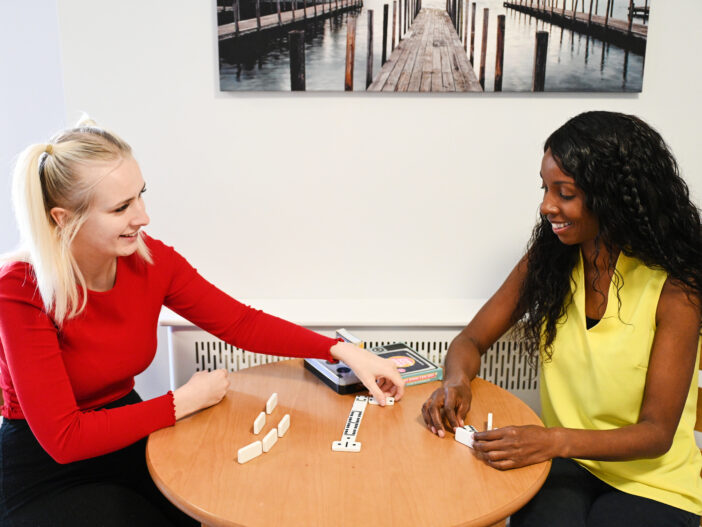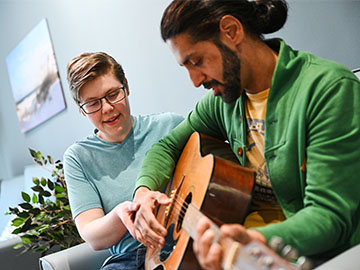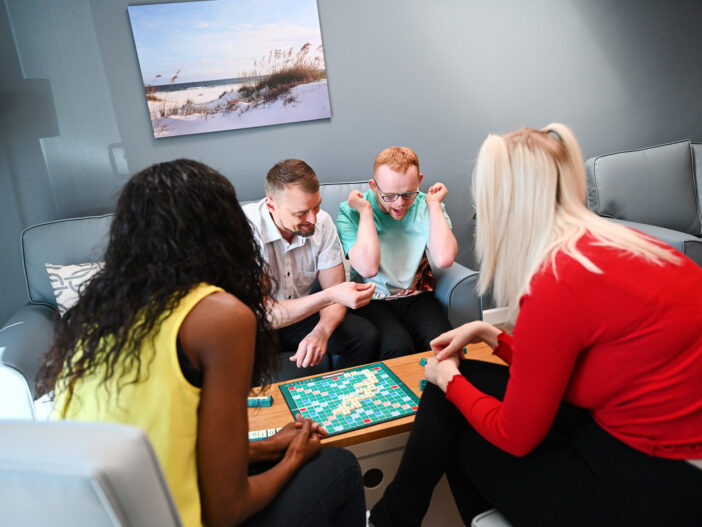Helping you after your child’s autism diagnosis
The arrival of a baby brings happiness to families, watching their movements and observing their milestones is very exciting.
Over the first few months, babies become interested in moving objects, smile at their mother’s voice, develop a social smile, enjoy face-to-face play and start to use their voice to express joy and displeasure.
Around the age of three, a child starts to develop their personality, express affection openly and has a wide range of emotions. They figure out how to work mechanical toys, sort objects by shape and colour, match objects to pictures and communicate more with others.
This age is very crucial. If a child were to show any developmental delays, it would be during this time period and early intervention is important.
Here are our five tips to coping with your child’s autism diagnosis.
1. Initial observations
If you have concerns that your child may have autism, the first step is to talk to your paediatrician. In many cases they may be able to offer your child a developmental screening to check if your child has any developmental delay conditions that may include autism.
However, developmental screenings should not be seen as an alternative to a full assessment and diagnosis.
Different professionals use different methods to diagnose autism, but there are guidelines that they should all follow:
- NICE Clinical Guideline 128 in England, Wales and Northern Ireland.
- SIGN Clinical Guideline 145 in Scotland.
The National Autism Plan for Children (NAPC) explains how a multi-disciplinary assessment should always be carried out. It should include:
- Reports from all settings (e.g. school, nursery and other carers).
- An autism-specific developmental and family history.
- observations in more than one setting.
- Cognitive, communication, behaviour and mental health assessments.
- An assessment of the needs and strengths of all family members.
- A full physical examination.
- Tests and assessments for other conditions where appropriate etc.
2. After diagnosis
If your child has been diagnosed with autism, you may experience a range of uncomfortable emotions that are commonly associated with the grieving process: shock, sadness, anger, denial, loneliness and acceptance. This is normal and you should be open to experiencing all these emotions with the whole family. Talk to each other – navigating this new world with your child can be difficult. Overtime, you’ll begin to understand their changes in behaviour and learn how to help them avoid stimuli that overwhelms them.
3. Accepting autism
Autism is an integral part of your child. Be sure to celebrate each achievement and development as they occur. Understand that autism is not a disease or disability, it is a life-long condition which means they are autistic and have their own personality just like any other person.
It’s easy to become overwhelmed with your emotions and concerns about what is going to happen in the future. If you deny your feelings or ignore them, they will often surface in unpleasant ways. If you accept your reactions and acknowledge your feelings, you will be able to move forward and begin advocating for your child.
4. Keeping your family network strong
Everyone in your family will need support at times during this new journey. It is important to maintain relationships with your family members, friends and your local community to maintain a support network.
It’s also very important that other siblings understand autism, as their brother or sister may be showing behaviours that they may not understand.
The arrival of a baby brings happiness to families, watching their movements and observing their milestones is very exciting.
To keep the family network strong, communication is vital.
5. Look after yourself
Caring for your autistic child can be physically exhausting and emotionally draining. It is very important that you look after yourself so you can provide the required support for your child. Make sure you take time for yourself. Respite care can also give you a good break to relieve stress. Remember, autism was not a planned journey for your child. By preparing yourself, you can be the best support for them.
When can we help?
Our autism support is currently focused on working age adults (18-65 years old).

 Information
Information 

